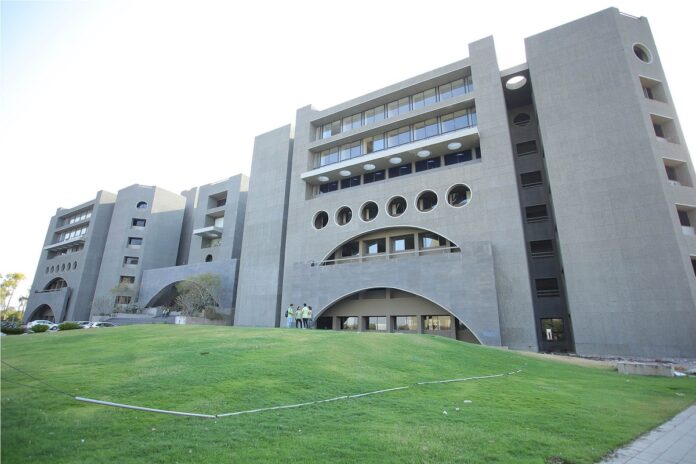New Delhi, 7th November, 2022: Marwadi University (MU) — the youngest institution to be recognized as a Centre of Excellence (CoE) by the Government of Gujarat — will organize and host the National Seminar on Computer Vision and Image Processing (NASCOVIP 2022), in association with the Gujarat Section of IEEE, the world’s largest technical professional organization dedicated to advancing technology. The seminar, themed ‘Computer Vision and Image processing for Humanitarian Technology’ will take place at the MU campus on November 11-12, 2022.
The primary objective of NASCOVIP 2022 is to promote scientific information exchange amongst experts, researchers and PhD scholars, developers, engineers, students, and practitioners working in the country. With the explosion of internet technology and graphic engines, there has been a massive growth in the research area of Computer Vision and Image Processing, which have applications in industries such as healthcare, retail and automotive, among others.
Some of the esteemed speakers lined up for the event include: Sridhar Devarajan, Associate Professor, Centre for Neuroscience at IISC, Bangalore; Sushmita Mitra, Professor, Machine Intelligence Unit at Indian Statistical Institute, Kolkata; Krishna P Miyapuram, Associate Professor, Indian Institute of Technology, Gandhinagar; and Jian Chen, Associate Professor, Computer Science and Engineering, Ohio State University, USA, among others.
Marwadi University field of Image Processing deals with the processing of digital images that are two-dimensional entities, Computer Vision — a field of artificial intelligence (AI) — adds the third dimension by computing the object’s depth. The global computer vision market size could reach USD 20.88 billion by 2030, growing at a CAGR of seven per cent.
“We are excited and honoured to host the experts from industry and academia at our University, who will address the recent developments and trends in the relevant domains. Through this seminar, participants will get to enhance their knowledge regarding state-of-the-art fields through interaction with experts. It will stimulate the research potential of the candidates who wish to pursue doctoral degrees in allied fields. It will also focus and identify the need to invest in current emerging technologies such as computer vision,” says Prof. (Dr) Sandeep Sancheti, Provost, MU.
NASCOVIP will also include sessions on harnessing AI for healthcare, deep learning and medical informatics, brain computer interfaces for reconstructing sensory experiences, and moving toward design of data driven IoT models using deep learning for Human Activity Recognition .Marwadi University On the sidelines a PhD Conclave has also been setup for scholars to present their project/thesis and get valuable inputs.
Also Read: A Deep Dive into the Phenomenon of Moonlighting
“Computer Vision and Image Processing are extensively used by energy utilities, medical imaging, manufacturing, and the automobile industries for automation, performing quality checks, testing, real time prediction etc. and the market is still expanding. Opportunities like this National Seminar are important to expose learners and future tech talent to the latest trends and pique their curiosity,” Dr R B Jadeja, Dean, Faculty of Engineering, MU said while reinforcing MU’s commitment to building an entrepreneurial tech ecosystem.
MU will also be hosting an upcoming international event, ASCIS-2022 scheduled to be held between 24th and 26th November, which intends to bridge the gap between industry and academia through research intervention from top leaders in intelligent computing and cyber security.
To that end, the Union Minister of State for Electronics & Information Technology and Skill Development & Entrepreneurship, Rajeev Chandrasekhar had also recently visited MU campus and held interactions with students, startups, innovators and academia.
Visit EasyShiksha for skill development courses.

































































